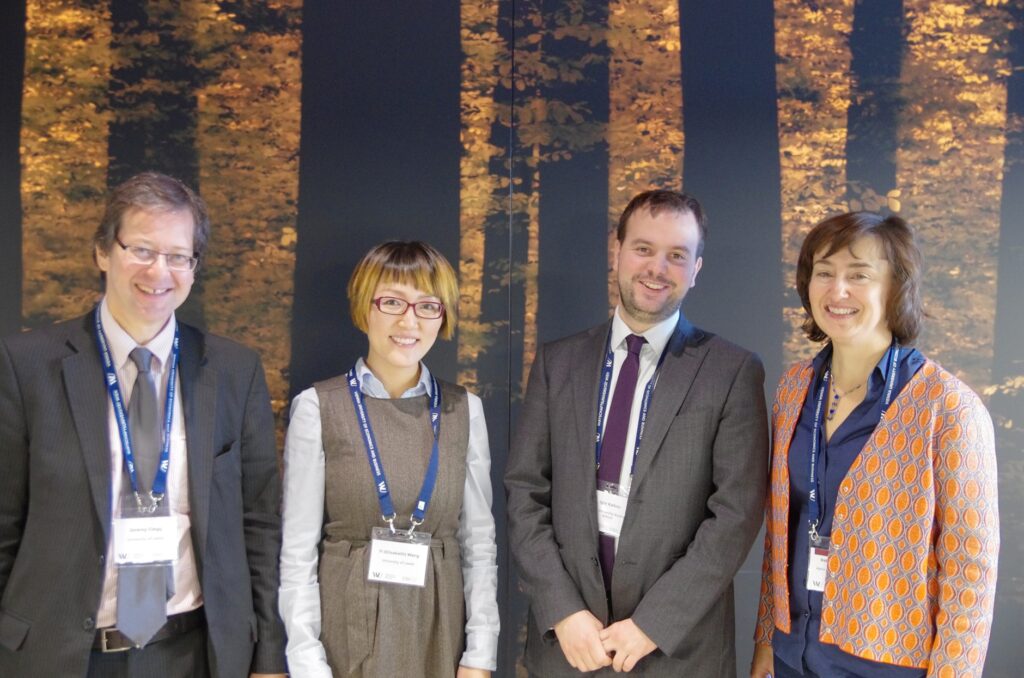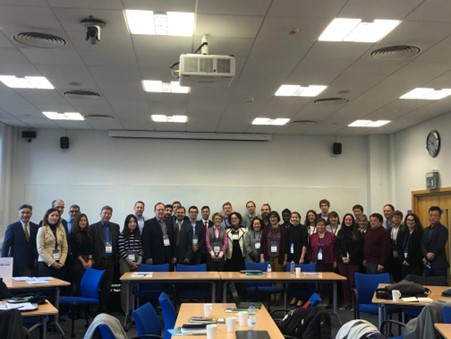by L. Jeremy Clegg
The Danny Van Den Bulcke Doctoral Tutorial, formerly the EIBA Doctoral Symposium (DS), was born at the Brighton Conference in 2012. We aimed to create a new type of doctoral workshop to serve the extensive pent-up demand beyond the existing John H. Dunning Doctoral Tutorial. Dr Ödül Bozkurt (University of Sussex) and I co-chaired the inaugural Symposium, catering to 11 students and consisting of four panels. The DS model was to run two, or more, parallel sessions twice. This gave great flexibility. Whatever the number of doctoral students wishing to participate, they could, in principle, be accommodated simply by requesting extra rooms for the parallel sessions. The subsequent years showed that we needed this expansion space. Each year, the doctoral students’ submissions were placed into natural groups for which we searched for matching faculty panels. In the early years we almost invariably chose senior researchers, with breadth and depth, while latterly we included newer researchers.
Building panels of advisers around the students worked remarkably well, thanks to the generosity of the senior EIBA researchers who came forward with heartwarming readiness, year after year. The main challenge was to form the panels before conference participants had fixed their travel plans – always a race against time.
At EIBA Bremen 2013, Elizabeth Yi Wang, my colleague at Leeds, and I co-chaired the second symposium, with the number of students rising to 20, and, at Uppsala to 28. The social dimension also developed as invariably the organisers gave us lunch, tea/coffee and cakes. For Rio de Janeiro 2015 (22 students), we mischievously suggested the provision of caipirinha. In Vienna 2016, Igor Kalinic, then at Leeds (now at the European Commission) joined us, as a third co-chair for the 5th EIBA Doctoral Symposium, with the doctoral researchers now numbering 30.
Reviewing the original panels today, it is gratifying to see how many of the doctoral participants have gone on to prominence within the field of International Business. With over 5 years’ co-chairing, I was ready to hand over in 2017 and was delighted that Rebecca Piekkari was willing to do this, working with Elizabeth and Igor. Also in Milan 2017 (24 students) the DS was renamed to honour Danny, who did so much to develop and encourage new researchers.
In Poznań 2018 (27 students) the three co-chairs added a collective opening session to address common concerns of the doctoral researchers, their mentors and supervisors. In Leeds 2019 (13 students) this new session was themed “How to deal with harsh criticism and extreme stress as a part of one’s academic career?”, stimulating some particularly touching responses from the doctoral audience.
I am confident that this unique element of the EIBA conference programme will get better and better, contributing to the development of further cohorts of early career researchers.

